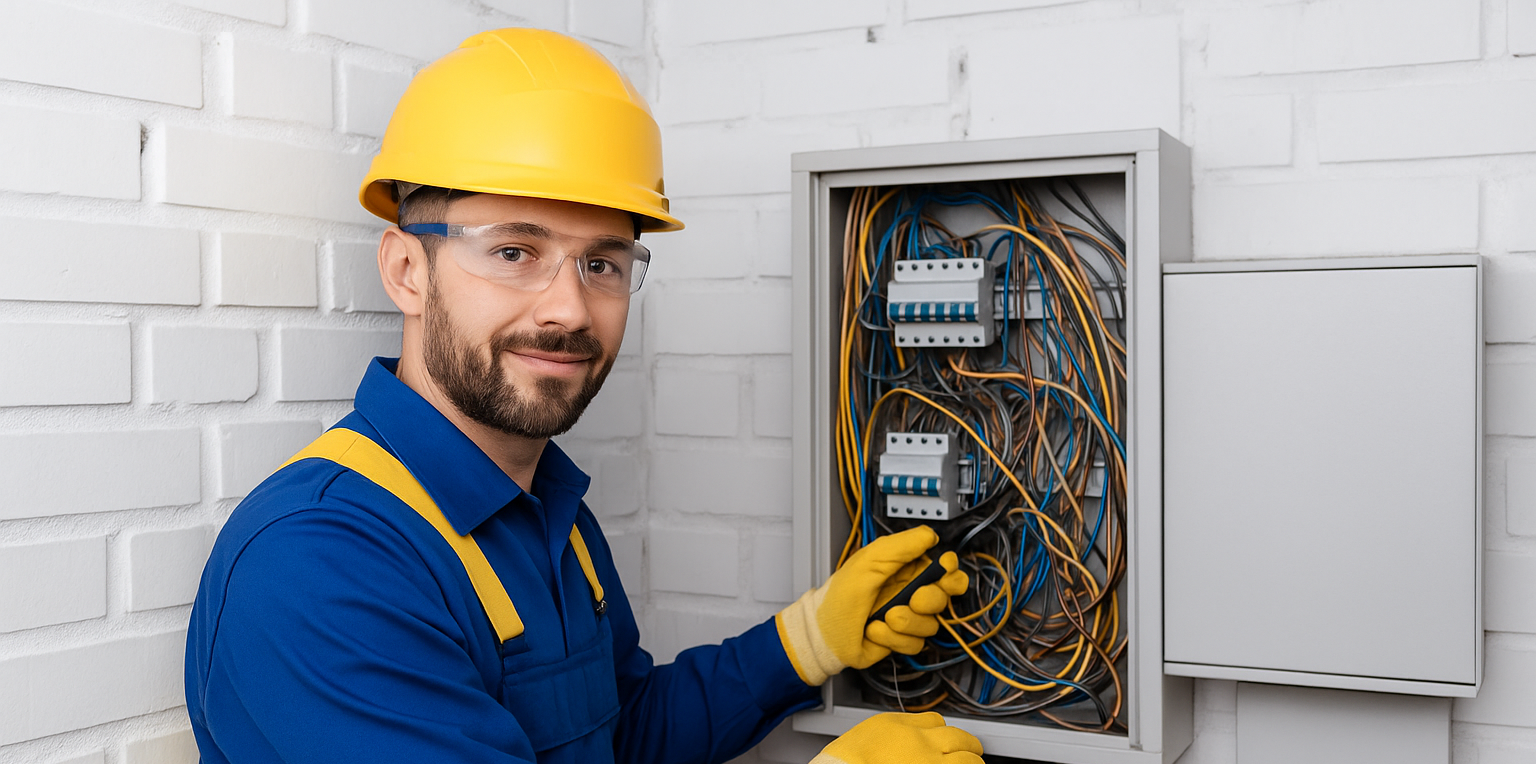Electricity powers almost every aspect of modern living – our lights, appliances, computers, and essential systems all depend on it. Yet, many people only pay attention to their electrical systems when something goes wrong. Regular electrical maintenance is the best way to prevent unexpected failures and ensure your system operates safely and efficiently. By having a professional check your electrical setup periodically, you minimize risks, extend equipment life, and keep your home or business running smoothly.
Electrical systems are built to last, but like any other part of a property, they wear out over time. Dust accumulation, humidity, constant use, and vibrations can gradually loosen connections, degrade insulation, and wear down components. Without proper maintenance, these small issues can lead to major hazards – overheating, short circuits, or even electrical fires. Routine inspections catch these problems early, before they cause damage or pose danger.
One of the primary reasons to perform regular electrical maintenance is safety. Faulty wiring and overloaded circuits are among the top causes of electrical fires. By inspecting your panels, outlets, and connections, electricians can identify potential hazards such as overheating wires, burnt terminals, or loose lugs. Preventive maintenance ensures your family, employees, and property remain safe while keeping your electrical systems compliant with local codes and regulations.
Regular maintenance also enhances system reliability. Imagine a business losing power during working hours or a family left in the dark during a storm. Routine checkups help avoid such scenarios by ensuring all components from breakers to outlets – function properly. This proactive approach reduces unexpected downtime, prevents costly emergency repairs, and provides peace of mind knowing that your power source is dependable.
Another significant benefit is energy efficiency. Dirty, loose, or corroded connections can cause your system to draw more current than necessary, wasting electricity and increasing your utility bills. A well-maintained system operates smoothly, delivering power efficiently and reducing energy waste. This means lower costs over time and less strain on your electrical infrastructure.
Routine maintenance also extends the lifespan of your electrical components. When systems are regularly cleaned, tightened, and inspected, they’re less likely to experience premature wear or overheating. Breakers, lighting fixtures, and motors last longer when kept within safe operating temperatures. As a result, you’ll spend less on replacements and avoid unplanned upgrades.
During an electrical maintenance visit, professionals usually inspect the main and subpanels for heat spots, check for balanced loads, and tighten any loose terminals. They may also perform infrared thermal scans to detect early signs of overheating, test GFCI and AFCI breakers for proper function, verify grounding connections, and inspect for corrosion. By keeping detailed records of these inspections, homeowners and business operators can track system performance and plan future improvements with confidence.
The frequency of maintenance depends on usage. For most homes, an annual or biennial check is sufficient. However, for commercial and industrial properties with heavier electrical loads, maintenance may be needed every six months or quarterly. Facilities with sensitive electronics or machinery benefit the most from a consistent schedule, as even a minor power fluctuation can cause significant disruption.
Some simple maintenance steps can be done by homeowners themselves, such as testing smoke alarms, ensuring outlets aren’t overloaded, and keeping breaker boxes dry and accessible. However, major inspections, rewiring, or breaker replacements should always be handled by licensed electricians. They have the tools, training, and experience to detect hidden issues safely without risking injury or damage.
Skipping regular maintenance might seem like a way to save money in the short term, but it often leads to more expensive problems later. Faulty wiring, overloaded circuits, or outdated panels can cause sudden power loss, destroy electronics, or even start fires. The cost of an annual inspection is minimal compared to the cost of emergency repairs, lost equipment, or property damage. Preventive maintenance is truly an investment in safety and long-term savings.
A good maintenance plan starts with a full system assessment. Electricians document existing conditions, identify risks, and create a schedule for repairs and follow-ups. They also provide recommendations for upgrades such as surge protection, smart breakers, or energy-efficient lighting to keep your system modern and reliable. Following this structured plan ensures that your electrical infrastructure remains in top shape all year round.
In conclusion, regular electrical maintenance is essential for every home and business. It prevents accidents, reduces costs, boosts efficiency, and protects valuable assets. A well-maintained electrical system isn’t just about keeping the lights on – it’s about ensuring that power is delivered safely, reliably, and efficiently every day. By investing a little time and attention now, you’ll avoid big problems later and enjoy peace of mind knowing your property is protected.
If you haven’t had your system inspected recently, schedule a professional electrical maintenance service today. An experienced electrician will help ensure your wiring, panels, and connections are secure, efficient, and compliant so you can focus on what matters most without worrying about electrical safety.

